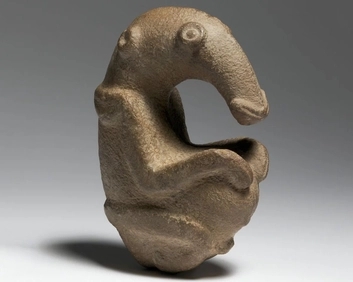(Papuan Ambum Civilization) what if the Papuans of New Guinea built a thriving civilization? in this alternate history timeline, the Papuans build extensive megalithic structures (based on the Ambum Stone) and started developing complex farming societies that transform into state societies with advanced irrigation systems and urban 'garden cities'. The papuan state societies are briefly unified by loosely governed empires and they exert influence on the Torres strait islanders and Australian Aboriginals of Northern Australia. This burgeoning Papuan civilization comes with into contact with Austronesians in Indonesia and the Philippines trading with them and gaining new technologies. How would this have affected history, cultures, demographics, economics, social dynamics, languages, cultures, religion, politics, etc??

 en.wikipedia.org
en.wikipedia.org
